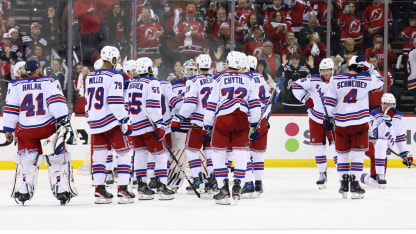Rangers eliminated after failing to sustain momentum in 1st-round series
Inability to neutralize Devils' speed, Panarin's struggles also led to 7-game loss

© Bruce Bennett/Getty Images
Inability to neutralize Devils' speed, Panarin's struggles also led to 7-game loss

© Bruce Bennett/Getty Images